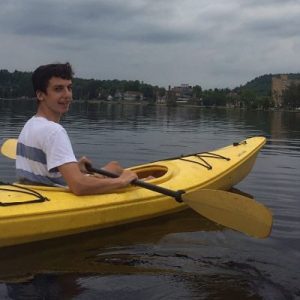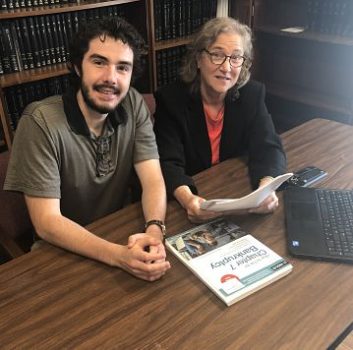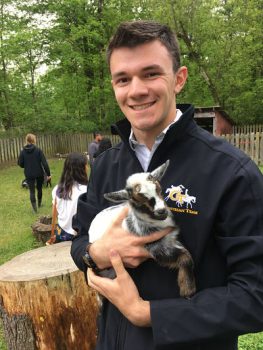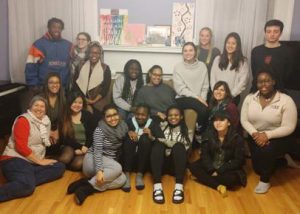Submitted by Emmy Ritchey ’20, one of 30 students doing community-based research this summer as a Fellow in the Upstate Institute Summer Field School
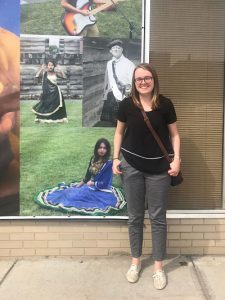
This summer, I am thrilled to have the opportunity to work with the Mohawk Valley Resource Center for Refugees (MVRCR). MVRCR serves refugees, immigrants, and limited English speakers living in the Mohawk Valley region. Based in Utica, New York, MVRCR strives to help refugees integrate and eventually become self-sufficient and provide a welcoming, supportive community for them. MVRCR provides many services to the community: resettlement, traffic safety, job placement, entrepreneurship, translation, interpretation, ESL classes, and citizenship classes. My project focuses on the Welcome Center, a new program that will provide refugees with entrepreneurship development tools.
Last summer, I was a Field School Fellow at the Midtown Utica Community Center (MUCC), which serves as a gathering space for the refugee community. I enjoyed my time learning about the refugee community of Utica in that capacity that I chose to work at MVRCR this summer to learn more about the services provided to the refugee community. Coming into this position, I had background knowledge of the refugee community, but I have learned so much about what MVRCR provides that helps the refugee community with what they need. This summer, I have had the opportunity to go out into the community and explore Utica. I feel like I have a much better understanding of the community that MVRCR serves after visiting refugee-run businesses and local faith-based organizations while postering for different MVRCR events.
My main project is focused on the Welcome Center. The Welcome Center is a new initiative that aims to provide refugees with the necessary resources to start their businesses. There are significant barriers for refugees trying to gain traditional American employment. Many have skills and qualifications from their native countries, but those certifications do not necessarily transfer once they arrive in the United States. Entrepreneurship gives refugees an empowering chance to be their own boss and have control over their work. Statistics show that refugees and immigrants are more likely to start businesses than U.S.-born citizens. Entrepreneurship seems to be a valuable option to help refugees move forward. My research consisted of finding refugee-based entrepreneurship programs within the United States and worldwide and examining what made them work. I am currently in the process of planning a business round table. Invitations will be extended to local refugee-and-immigrant-owned businesses. The round table’s goal is to find out how these entrepreneurs started their businesses and what sort of resources they wish had been available at the start or should be available now.
Other than working on the entrepreneurship program, I’ve also created social media campaigns for MVRCR’s World Refugee Day and Match Grant Program. My campaigns have received great responses from the community, and I am very pleased to see that my first attempts at creating social media content were successful. I have also spent time developing new success stories for MVRCR’s website. I have developed questions and conducted interviews, which I have written up for featuring on their website.
I am an English major with an emphasis in creative writing, and my work at MVRCR has been writing heavy. Instead of writing fiction and essays, I focused my writing to advertise events and to inform readers in profiles of successful refugees; I feel like this has broadened my ability as a writer. I also enjoyed seeing another side of the Utica refugee community and have learned so much about the many moving pieces that go into helping the refugee community thrive. Last summer, I enjoyed being a Field School Fellow, and I could not be happier with my decision to come back and learn more about and help the communities that are in the surrounding area of Colgate.



